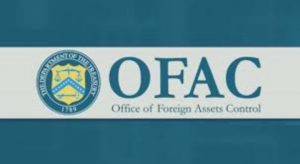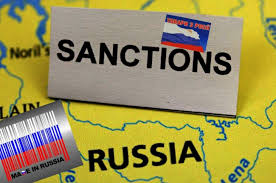OFAC Announces Russia Sanctions Settlement with Software Company
 The Department of Treasury’s Office of Foreign Asset Control (“OFAC”) recently announced a settlement against Cobham Holdings (and its former subsidiary Aeroflex/Metelics, Inc. (“Metelics”, a software company) for $87,507 for violations of OFAC’s Ukraine-Russia sanctions program. (OFAC announcement here).
The Department of Treasury’s Office of Foreign Asset Control (“OFAC”) recently announced a settlement against Cobham Holdings (and its former subsidiary Aeroflex/Metelics, Inc. (“Metelics”, a software company) for $87,507 for violations of OFAC’s Ukraine-Russia sanctions program. (OFAC announcement here).
Metelics violated the Ukraine-Russia sanctions program on three occasions between July 31, 2014 and January 15, 2015, by selling telecommunications and computer software (3,400 switch limiters; 6,900 switches; and 20 silicon diode switch limiter samples) through distributors in Canada to a prohibited (“SDN”).
Prior to December 14, 2015, Metelics was a subsidiary of Cobham, a global provider of technology and services in aviation, electronics, communications and defense. While negotiating for the sale of Metelics, the prospective purchaser identified a July 31, 2014 shipment of silicon diode switches and switch limiters to a Metelics distributor in Canada for end-use by Almaz Antey (“AAT”) in Russia. Cobham investigated the shipment and discovered that in December 2014 and January 2015, Metelics made two additional shipments through a Russian distributor for end-use by AAT.
Interestingly, AAT was not specifically listed on OFAC’s SDN list, but was 51 percent owned by Joint-Stock Company Concern Almaz-Antey (“JSC Almaz-Antey”), which was added by OFAC to the SDN list on July 16, 2014, two weeks before the first July 31, 2014 shipment. Accordingly, AAT was blocked at the time Metelics engaged in the two transactions and three specific shipments to AAT through the Canadian and Russian distributors.
On June 18, 2014, Metelics agreed to ship an order of 6,900 switches and 6,900 switch limiters through the Canadian distributor to AAT. The value of the order was approximately $1.1 million.
The next day, Metelics performed a sanctions and denied party screening for the order that returned red flags for Russia generally but not AAT specifically since JSC Almaz-Antey had not yet been added to the SDN List. Metelics did not have sufficient stock to fill the order and therefore split the order into two separate shipments.
The first shipment occurred on June 27, 2014. Metelics performed another screening with similar results to the first screening. Metelics forwarded the end use certificates to its Director of Trade Compliance, who approved the transaction, and Metelics shipped the first part of the order on June 27, 2014. The shipment value was worth approximately $377k.
On July 16, 2014, OFAC designated JSC Almaz-Antey and added it to the SDN List.
Metelics prepared the second shipment on July 31, 2014 and again performed a screening. Despite searching using the terms “Almaz” and “Antey,” Metelics’ search produced no warnings or red flags for AAT. Again, the Director of Trade Compliance approved the transaction, and Metelics shipped the second part of the order on July 31, 2014. The value of the second shipment was $745k.
In October 2014, Metelics received an order for 10 samples of two different silicon diode switch limiters from a Russian distributor for end-use by AAT. On October 27, 2014, Metelics performed another screening and did not return any matches or red flags. After being approved by the Director Trade Compliance, Metelics subsequently shipped the samples on December 19, 2015 and January 15, 2016, respectively. The value of the transaction was $10.
 Cobham later determined that its screening software failed to generate an alert because the entry of the information omitted the term “Telecom,” and Metelics’ software required an “all word match,” even though Metelics had set the search criteria to “fuzzy” to detect partial matches. As a result, the software failed to flag “Almaz Antey” when Cobham searched for “Almaz Antey Telecom.”
Cobham later determined that its screening software failed to generate an alert because the entry of the information omitted the term “Telecom,” and Metelics’ software required an “all word match,” even though Metelics had set the search criteria to “fuzzy” to detect partial matches. As a result, the software failed to flag “Almaz Antey” when Cobham searched for “Almaz Antey Telecom.”
Cobham voluntarily disclosed the apparent violations, and OFAC determined the violations were non-egregious. In balancing the enforcement factors, OFAC determined that Metelics failed to recognize red flags when screening the proposed transactions; the Director of Global Trade should not have approved the transactions; the violations resulted in harm to the objectives of the Ukraine-Russia sanctions program; Metelics and Cobham are sophisticated entities operating in a sensitive industry; and Cobham and its compliance personnel were involved in prior violations of the Iran sanctions program and had entered into a consent decree for prior ITAR violations.
On the positive side, Cobham acquired and implemented new and enhanced sanctions screening software, which remedied the earlier screening deficiency. Additionally, Cobham acquired and implemented a screening and business intelligence tool with the capability of identifying and flagging persons known to be owned by persons on the SDN List. Cobham developed a process for employing the business intelligence tool to conduct enhanced due diligence on high-risk transactions from an OFAC sanctions perspective.
Finally, Cobham circulated a lessons learned bulletin to all US-based international trade compliance personnel that reiterated the importance of compliance and avoiding transactions with unlisted entities and persons associated with a prohibited party on the SDN List.
As an important lesson learned, OFAC reiterated that companies should take steps to ensure that its screening software is sufficiently robust and that appropriate personnel are trained on its functionality. Furthermore, OFAC stated that “it is essential that companies in international transactions maintain a culture of compliance where front line staff are encouraged to follow up on sanctions issues, including by promptly reporting to compliance personnel transactions suspected to involve sanctioned parties.”














